#brian epstein
Melody Maker - December 25, 1965
Pop Think In
Brian Epstein
Beatles manager Brian Epstein faces up to the pop think-in, a new technique in pop journalism
JUKE BOX JURY: I love playing it because it’s a television show that I can do. I seldom watch it and I don’t think it’s a good programme. It’s quite meaningless. I probably won’t be doing it again because they won’t be asking me after that, will they?
JOHN: Lennon. Great mind, great person. One of the best people I’ve ever met. He’s an interesting character to watch develop.
RED WINE: I like to drink red wine and nothing else alchoholwise, but this doesn’t seem to work out.
SEMI-DETACHED HOUSES: If I say something nasty I’ll get little letters because I said something nasty about semi-detached houses before. But I’d rather have a hut on its own.
GEORGE:Harrison. I always think of George as a friend. Somewhat inconsistent person. Can be difficult. Never has been with me. Great personal charm, but this goes for any Beatle. Any faults the Beatles are supposed to have are never apparent individually. Any faults they have probably only come when they are together as a group. When there is too much talent in one room.
LOVE: A good word in pop songs.
POP WRITERS: Rather intelligent, as journalists go. The dearth of pop knowledge is quite incredible amongst non-musical journalists.
CLIVE EPSTEIN: I’d like him to come into the entertainment business.
RINGO: Ringo’s coming into the group was one of the Beatles’ most brilliant doings. It was something they wanted and that I carried out. It was for so many reasons a quite brilliant move.
PUBLIC SCHOOLS: Difficult because I went to a few. If I had a son I don’t know whether I would send him to one or not.
PAUL:Probably the most changed Beatle. He’s mellowed in character and thought. A fascinating character and a very loyal person. Doesn’t like changes very much. He, probably more than the others, finds it more difficult to accept that he is playing to a cross section of the public and not just to teenagers, or sub-teenagers, whom he feels are the Beatles’ audience.
R.A.D.A:Didn’t like it. Don’t believe in acting schools. I believe in acting experience.
SUCCESS: I’m told I’m successful but I really don’t believe it.
FAILURE:I’d much rather be conscious of my failures than successes. What good do compliments do?
LARRY PARNES: Fascinating! I often wondered if I’d go the same way, but knowing him as I do now, I know I won’t because we’re two very different people.
OLD AGE: Don’t mind. I like getting older because I know more about things.
MONEY: Still scarce.
PALAIS BANDS: Hush. Silence.
ELKAN ALLAN: He wouldn’t be the producer I would choose to direct a spectacular for me. A lucky man I think.
LIARS:Almost everyone.
GOSSIP COLUMNS: The greatest. I love them.
CHRISTMAS:I quite like Christmas. I don’t mind the trappings.
MUSIC PUBLISHERS: Very boring people. They’ve forgotten what a good song is.
BEATLES’ NEXT FILM: No comment yet. Still shrouded in secrecy. There are no announced plans. There will be a new single record in April or May.
SMOKING:I’m not frightened of it.
DRINKING: I haven’t touched spirits for three weeks. It’s a new sensation! I may keep off for a long time.
FREEMASONRY:Not for me.
THE NAME ‘EPPY’: I quite like it but I don’t like it being used to my face. I don’t mind the Beatles using it. I know they do.
BLUNT NORTHERNERS: Splendid, but they’re a bit conscious of their interesting bluntness.
ANTI-SEMITISM:I’m not so conscious of it. Jews who are conscious of it should remember if they had green hair people would stop and stare and sneer and snigger. Particularly if they were famous. I don’t think people in this country particularly dislike people with long noses.
KEN DODD: I admire him. Where does he go from here? The challenge is whether he could make it out of this country.
MILLIONAIRES: Usually disappointing.
BLACKPOOL:Quite like Blackpool, but I shouldn’t want to do a season there personally.
SEEKERS: Don’t know much about them. I met one the other night - quite pleasant.
TRADITIONAL FOLK MUSIC: On the whole I find it boring.
BEING DISLIKED: I suppose I’m conscious of it. It can’t be helped.
ANDREW OLDHAM: An incredible person. He was with us for six months. I had no idea he had creative ability. It taught me not to under-estimate people.
WEST END THEATRES: A sad business, But I’m not disillusioned with my first year’s activities. It’s not going to be of tremendous interest to me until I can bring into the theatre a broader section of the public.
RUMOURED CLOSING OF THE CAVERN: This shouldn’t be so, but it’s nonsense to make it into some sort of charity. It has had a lot of help from people like the Beatles. If it’s not successful now, nobody’s going to cry over it being closed.
LABOUR PARTY: I’m a socialist at heart.
SUMMER SEASONS: They are good for an artist. Can be depressing.
WIGS:Splendid.
BUTLINS:I’d like to go there. Better than a semi-detached house.
DOGS:Terrified of dogs. Almost put me off people.
MARRIAGE: I’d like the state of marriage five days a week.
P.J. Proby: I should have managed him.
————————————————————————–
*RE: Brian’s comments about semi-detached houses: They probably stem from a piece published in Melody Maker’s January 23, 1965 issue - an article where Ringo Starr recalled travelling with Brian and George Harrison to Hampstead, to a party hosted by the magazine:
‘Driving from Knightsbridge to Hampstead in Brian’s new car was good fun. It’s a great car - all those electrically-unwinding windows, central heating and the roof that I prevented Brian from opening on a freezing night!
I can remember George in the back of the car muttering some funny things and saying he’d written his second song; Brian trying in vain to get Luxembourg on his car radio; and nobody quite sure which way to go for Hampstead.
Don’t ask me how, but we got there. Funny - George said something about the houses round there looking pretty good, and I distinctly remember Brian saying to him: “But how COULD you? They’re semi-detached!”’
Post link
The Beatles during rehearsals for Another Beatles Christmas Show, December 1964. With them are producer Peter Yolland and promoter Joe Collins.
In 1986 Joe Collins published a memoir, A Touch of Collins. Below is a portion of the book where Collins recalls his memories of the Beatles and Brian Epstein:
By the early ‘sixties rock 'n’ roll was a regular part of my business. The hit parades were as familiar to me as the multiplication tables, and I always kept an eye on the bottom end of the charts to see who was coming up and could be booked at a reasonable fee before he or she broke really big.
In February 1963 a promotions executive at The People telephoned me.
‘Can you find us an attraction for our summer ball? Something for young people?’
I recommended a new pop group from Liverpool called the Beatles, and said I’d try to book them.
When I tracked down the Beatles’ manager, Brian Epstein, at his family’s furniture store in Liverpool, he was happy for his boys to perform at the newspaper ball. We agreed on a fee of £500.
Three months later, when the Beatles had their second No.1 hit, ‘From Me to You’, the man from The People phoned again. ‘This Beatles group you’re getting for us, I’m afraid they won’t be suitable after all for our ball. There’ll be such a rush for tickets we won’t be able to cope, and there could be trouble outside with their fans. Can you possibly manage to cancel our arrangement?’
When I told Brian Epstein of the cancellation, he did not disguise his relief. Since our earlier agreement the £500 fee I had negotiated had become ludicrously low payment for a Beatles cabaret.
However, this was not the end of my association with Brian Epstein and his Beatles.
Later that same year Stan Fishman, who booked live attractions for the Rank cinema circuit, came on to me. ‘Brian Epstein wants to do a Beatles Christmas show, but he has no idea how to go about a full stage production. Can you help him?’
I could, with pleasure! I booked the Beatles Christmas Show into the Astoria, Finsbury Park in North London for two weeks, commencing on Christmas Eve 1963.
I organized the scenery, hired some tabs (backdrop curtains), engaged a producer, Peter Yolland, and a compere, the Australian entertainer Rolf Harris. I reckoned that Harris, as a former schoolteacher, would be able to handle a rowdy teenage audience.
The other acts were provided by Brian Epstein. Apart from the bill-topping Beatles, there was a group from Bedfordshire, the Barron Knights, while the rest came from Brian’s stable of Liverpool talent, names he had launched that very year: Billy J. Kramer and the Dakotas (who had already had three top hits), the Fourmost, Tommy Quickly and Cilla Black, Brian’s latest discovery.
Cilla, a toothy, 20-year-old redhead, had recently given up her regular job as a typist. In the 'sixties the rock audiences did not care much for girl singers, but it was customary to include just one female vocalist on a bill, if only to get some variety into the programme. For her act at Finsbury Park, I remember Cilla coming on stage in a pink mini-skirted dress to sing a lesser-known Lennon-McCartney song she had recorded, ‘Love of the Loved.’
When I looked at the printed programme for that Christmas show, I noted the credit I had been given: ‘Brian Epstein wishes to acknowledge with gratitude the invaluable assistance of Joe Collins in the presentation.’ I was actually co-producer.
As the show was intended to be ‘special’, not just a plain pop bill, Peter Yolland decided that the Beatles should perform a few sketches.
The night the show opened I wandered into the auditorium to witness George Harrison, dressed as a Victorian maiden, being tied to a railway line by John Lennon, in the role of Sir Jasper, the wicked landlord. Then Paul McCartney entered as the heroic signalman who rescues ‘her’.
The experience, appropriate to the plot, was like watching a silent film. The boys’ dialogue, if they were speaking lines at all, was drowned by the screeching audience. That was the first and only performance of the Beatles as stage actors.
That night at Finsbury Park, I met the Fab Four in person. I went backstage to introduce myself. ‘How’s the dressing room?’ I asked, sticking my head round the door of the shabby cell they were sharing.
‘All right,’ said drummer Ringo Starr, who always looked glum even when he was happy.
‘Is there anything you need?’ I asked politely.
‘Yes, there is!’ said Ringo promptly. ‘Can you find us some flex for our electric kettle? We want to brew up some tea.’
‘If you get us a lead for our kettle, we’ll give you some earplugs,’ George Harrison cajoled. ‘You’ll need 'em if you go out front!’ That I knew already.
Only one thing blighted our run at Finsbury Park. After the Beatles and other Liverpool groups had monopolized the top chart positions for nearly a year, a London group, the Dave Clark Five, suddenly became a threat. Their shattering, thumping ‘Glad All Over’ ousted the Beatles from No.1. The newspapers treated this item as a major sensation. ‘DAVE CLARK FIVE CRUSHES THE BEATLES!’ shrieked one of the headlines.
‘Well, we can’t be top 52 weeks of the year, can we?’ retorted Paul McCartney.
Still, despite those frantic, yelling girls in their Finsbury Park audience assuring the Beatles how much they were loved, Lennon, McCartney, Harrison and Starr were green enough in show business to be upset about that gimmicky newspaper story.
On 14 January 1964, a few days after our show closed, the Beatles’ new record ‘I Want to Hold Your Hand’ became their first disc to reach No.1 in America, and by the end of the year they were as popular in the US as they were in Britain.
Young Cilla Black, too, the sole girl on the Finsbury Park bill, was proving too that she had a future.
During our Christmas-show partnership, Brian Epstein had invited me to dinner at his new London penthouse in William Mews, behind Harrods in Knightsbridge.
I noted, with some surprise, that Brian’s taste in furnishings was very arty. His choice of décor, with thick white carpeting and black leather settees, was not quite what I had expected from him after meeting his family from Liverpool, who were very down-to-earth despite their affluence.
Over our meal Brian talked about nothing else but his plans for Cilla Black.
‘She’s great… absolutely great,’ he kept assuring me.
While agreeing that Cilla had a warm personality, I could not agree with Brian that she was ‘great’.
He offered me evidence of her potential by playing a new recording of hers. I had already listened to enough music that day, but Brian was my host, so I put on an attentive expression as he switched on the record-player. The disc he played me was ‘Anyone Who Had a Heart’, a moving ballad by Burt Bacharach and Hal David. I realized Brian’s enthusiasm might possibly be justified. He was right: it reached No.1.
At the end of 1964, to round off the second amazing year of Beatlemania, Brian suggested we should jointly produce another Beatles Christmas show, to run from 24 December to 16 January 1965 at a very big cinema, the Odeon, Hammersmith, in West London.
We engaged two comperes, Jimmy Savile and Ray Fell, and the support bill, again all musical acts, included the Manchester group Freddie and the Dreamers, Sounds Incorporated, the Mike Cotton Sound, and a blues-oriented band, the Yardbirds, who had a particularly talented guitarist, a 20-year-old lad from Ripley, Surrey called Eric Clapton. The obligatory girl on the bill was a bluesy singer, Elkie Brooks, a baker’s daughter from Manchester. Elkie, like Cilla the previous year, was someone whose star potential Brian spotted early in her career.
The printed programme of what we actually called Another Beatles Christmas Show is now a souvenir I treasure, for it was illustrated with drawings by John Lennon, taken from the Christmas edition of his book In His Own Write.
The Beatles, after almost two years of adulation, were now getting worn down by the fervour surrounding them. They wanted a bit of peace, and visitors to their dressing room at Hammersmith rarely found a warm welcome.
One evening, when I was with them backstage, a Scandinavian representative from their record company EMI came in to be introduced to his bestselling product. He sat for a while in awe-stricken silence, watching them tune their guitars. Then he tried to start a conversation.
‘Tell me,’ he asked brightly, ‘what is the best thing about being a Beatle?’
John Lennon looked up at the man, his face registering no expression at all.
‘Best thing about being a Beatle?’ he repeated slowly. ‘Well, I guess it has to be that we meet EMI sales reps from all over the world.’
I cannot claim that I was one of the people to whom the Beatles wanted to chat, though as the show’s co-producer I would always make my routine call at their Odeon dressing-room.
‘How’s it going, boys?’
‘Fine, thank you,’ they would answer politely. That was the end of the dialogue. They’d simply stare at me for a moment or two, then continue talking to each other, usually about their music.
‘How do you get on with the boys?’ Brian Epstein asked me eagerly after one of my brief visits to the Beatles’ sanctum.
I laughed. ‘So far as I’m concerned they’re dumb… so dumb they’re making millions!’
Actually, from my point of view, the Beatles were a headache. I liked their records and even I, then a man of 62, was humming ‘She Loves You’. But I found it impossible to enjoy their stage performance. I couldn’t stand the way the audience screamed, making such an hysterical noise all the way through the show it was impossible to hear any of the music. The burly security guys worked as hard as any of the performers: they had to fight back at a rush of shrieking girls, apparently intent on storming the stage and tearing their idols to pieces.
Outside in the street before and after the show youngsters would be surging around the building hoping to waylay the Beatles as they left the theatre. The police trying to control these crowds were kicked, bitten and had their helmets knocked off in the frenzy.
Apart from the fact that my head was literally aching through the noise, I had a figurative headache, trying to spirit the Fab Four in and out of the theatre without anyone getting injured in the crush.
Like army officers planning a war operation, each day the theatre manager and I would meet with police representatives to devise some new Beatles escape campaign for the evening. We could never use the same method twice for the fans caught on too quickly.
However, at the end of that short Hammersmith Odeon season my head soon got right again, for I had been well rewarded. my personal fee for the two weeks’ work was £4,000, made up of my 20 per cent share of the profits and the sale of brochure programmes. In the 'sixties such earnings were a sizeable sum, especially as the Odeon profits were offset against a loss on another show I co-presented with Brian that season, Gerry’s Christmas Cracker, which played Scottish and provincial dates. I was surprised this show did not make a profit, for it starred the Liverpool group Gerry and the Pacemakers, Epstein discoveries who in 1963 had No. 1 hits with each of their first three records. (Gerry Marsden, happily, made a charts comeback in 1985 with a new recording of ‘You’ll Never Walk Alone’.)
The Rank Organisation was very pleased with my contributions to its coffers, and at the Rank circuit’s annual lunch following the 1964-5 Beatles season I was thanked officially by the company’s boss, John Davis, for having brought it the Finsbury Park and Hammersmith shows, the most successful stage attractions ever in the firm’s long history.
My association with the Beatles is a warm memory, not just because they provided a profitable venture, nor because they made a big personal impression on me: as I have said, I had no real communication with them. I was happy to have been involved because Brian Epstein was one of the most pleasant men with whom I ever did business. I found him charming, modest and completely straightforward in his dealings. I considered him a top-class businessman, and a gentleman.
Unlike some other managers and agents, he never regarded any of his artists as a mere commodity, to be signed up and hired out just to make money for himself. Brian was concerned personally for the welfare and future of each singer and musician he took on. In all my long career I have never met any manager so enthusiastic about his artistes. When we were together he talked of nothing else. He was thrilled that his boys were putting British pop music on the international map. It should not be forgotten that Brian, as a newcomer to show business, had tramped around the London record companies and music publishers literally pleading for a hearing for his Liverpool artists. He deserves much credit for turning British pop music into a high-earning export.
Post link
Books owned by Brian Epstein: Youngblood Hawke by Herman Wouk (1962, first UK edition)
Synopsis: ‘Aspiring writer Arthur Youngblood Hawke moves from Hovey, Kentucky, to New York City with nothing but a manuscript and a dream: to make it as a novelist. When, impossibly, his manuscript is sold - and becomes an overnight success - Hawke finds himself instantly famous and wealthy beyond his wildest dreams. He gives himself over to the high life, enjoying everything fame, fortune and New York City can offer. But Hawke, like so many dreamers before him, will discover that fame and fortune are dangerous friends.’
Post link
‘Brian never discussed his sexuality with me, but I should add a proviso here. He did tell me once that he was in a limousine in New York with a TV in it: that was nothing to New Yorkers, but it was quite something for us. He said, “I saw you on television in this limo,” and I groaned as I hate anyone to talk about my appearances. I had featured in a documentary film in Liverpool called The Rockin’ City and it was terrible, I didn’t like it at all. I don’t know how long he was in the car, but he said, “They also showed The Leather Boys.” That was a British film made in 1964 with Rita Tushingham and Colin Campbell. Colin Campbell befriends a merchant seaman who had fallen in love with him and right at the end there’s a dénouement. He goes into the pub full of queens, and he walks out in a state of disillusionment. There are no fisticuffs, no beating up of the people in the pub which is what John Wayne would do. It was a marvellous sad ending, which reminded me of Tchaikovsky’s Pathetiqué. Brian brought this up, he didn’t know that I had seen the film and I thought, “That’s the nearest you’ve ever got to talk with me about homosexuality.”’
- Bob Wooler (The Best of Fellas - The Story of Bob Wooler by Spencer Leigh)
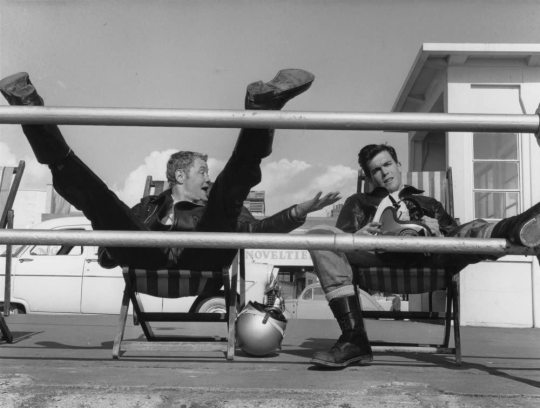
ABOVE: Dudley Sutton and Colin Campbell in The Leather Boys
‘The Fifth Beatle’s Double Life’(TheSunday Times - December 5, 2021)
Craig Brown reveals how the band’s debonair manager Brian Epstein made them millions but was tortured by drugs, homosexuality - and a fixation with John Lennon.
[Below is Craig Brown’s introduction to a new edition of Epstein’s A Cellarful of Noise]
With his polite side-parting, unflashy suits, diffident manner and public-school accent, Brian Epstein appeared much more mature than the Beatles. In interviews, he would call them ‘my boys’ or ‘the boys’; they, in turn, would always refer to him as ‘Mr Epstein’.
So it comes as a surprise to realise he was only six years older than John and Ringo. In April 1964, when he embarked on this memoir, he was twenty-nine. That same month, the top five places in the American top ten were all occupied by the Beatles, and there were a further seven Beatles’ singles in the top one hundred, along with two songs about them – ‘We Love You Beatles’ by the Carefrees and ‘A Letter to the Beatles’ by the Four Preps.
Since February, they had become the four most famous young men in the world. Even Ringo Starr, the least prepossessing of the Beatles, had been made the subject of a song, ‘Ringo, I Love You’, written and produced by Phil Spector and sung by Bobbie Jo Mason, soon to become more famous as Cher.
Having engineered all this fame, Epstein was clearly in no mood to play it down. In A Cellarful of Noise he describes the Beatles as ‘a worldwide phenomenon, like nothing in any of our lifetimes, and like nothing any of us will ever see again’. Mixing condescension with a dash of hyperbole he writes, ‘The haunted, wonderful wistful eyes of little Ringo Starr from Liverpool’s Dingle are more instantly recognisable than any single feature of any of the world’s great statesmen.’
ACellarful of Noise is a period piece. At times the period seems much earlier than the 1960s, exhibiting the muscular snobbery of John Buchan or Baden-Powell. At one point Epstein declares that the Beatles ‘never sit while a woman stands’ and at another that ‘their naturalness … wins them the admiration of people like Lord Montgomery’. Of one of his artistes, Gerry Marsden, he boasts that ‘Princess Alexandra twice requested him for cabaret at society balls’.
Many of his observations about the world of pop are now as dated as the National Milk Bar in Liverpool where he and the boys tucked into four packets of biscuits to celebrate the promise of a recording session at EMI. ‘The disc charts cannot stand very many girls,’ he writes, ‘however gorgeous they may look on stage.’
Nearly sixty years on, the Beatles are still part of the air we breathe, but some of Epstein’s other artistes, as he always called them, have vanished without trace. Who remembers Tommy Quickly? Epstein confidently predicts ‘he is going to be a star’, but alas he never was. Taken up by Epstein, he left his job as a telephone fitter, changed his name from Quigley to Quickly, took part in three Beatles tours and recorded five singles, all flops. He retired from the music business in 1965.
Michael Haslam – ‘he, I believe, is going to be very big’ – was part of the Beatles Christmas Show at the Hammersmith Odeon for three weeks in 1963. He recorded two unsuccessful singles, both produced by George Martin, the last of which was called, ominously, ‘There Goes the Forgotten Man’. Eventually, he fell out with Brian Epstein over an expenses claim for a pair of socks. Epstein let him go, and in 1966 Haslam returned to his £15-a-week job on a fleshing machine at Walker and Martin’s tannery in Weston Street, Bolton. His fellow workers greeted his return with a jaunty banner that read, ‘Welcome back Mike. Top of the Flops.’
In contrast to the devil-may-care merriment of the Beatles, Brian Epstein cultivated a reserved, fastidious air. He wore a Burberry raincoat, well-polished buckled shoes, gold cufflinks, a monogrammed shirt and a Christian Dior silk tie or a polka-dot cravat. ‘He was immaculate from head to toe, like Cary Grant,’ recalled Cilla Black. ‘He was everything you wanted a posh fella to look like.’ His Liverpool tailor, George Hayes, maintained that he always looked as if he’d just stepped out of the bath.
Epstein would have preferred Godfrey Winn or Beverley Nichols, well-manicured household names, to ghostwrite his memoir, but his publisher, Ernest Hecht, vetoed them for being ‘far too pricey and the wrong image’. In the end, Epstein settled for Derek Taylor, then a showbiz journalist on the Daily Express, but soon to become the Beatles’ press officer.
The two men motored down to the Imperial Hotel, Torquay in Epstein’s chauffeur-driven Rolls-Royce. Taylor was particularly impressed by the electric windows. ‘I’d never seen such a thing.’ The two men got on well. In their first session Epstein opened up about his uneasy childhood and troubled adolescence, but he hesitated before revealing his greatest secret. There came a point when he realised he would have to broach the subject. Over lunch, he suddenly asked, ‘Did you know that I was queer?’ ‘No, I didn’t,’ replied Taylor. ‘Well, I am, and if we’re going to do this book I’m going to have to stop buggering about saying I was with this girl when I would not be with a girl, it would be a boy. Does that make any difference?’
It must have been an agonising confession – in 1964 homosexuality was still an imprisonable offence – but Taylor was unfazed. ‘No,’ he remembered saying, ‘it doesn’t make any difference. It’ll make it a lot easier. So you mustn’t worry any more, difficult as it may be to convince you perhaps, but I won’t ever let you down.’
Between the two of them, they conspired to render everything seemly. The book makes no mention of Epstein’s sexuality or the deep torment it caused him. Of his time in National Service, for instance, we hear simply that he was ‘the lousiest soldier in the world’. Wearing a pinstriped suit and a bowler hat, he was charged with impersonating an officer and confined to barracks. This caused his nerves to become ‘seriously upset’. Psychiatrists decided he was ‘a compulsive civilian and quite unfit for military service’, so he was ‘discharged on medical grounds’.
The truth is both more fraught and more interesting. Stationed at the Albany Barracks in Regent’s Park, Epstein had hated his ‘hideous’ private’s uniform and had asked his tailor to run him up a rather more elegant officer’s outfit, which he then wore to cruise the West End in search of young men. At the Army and Navy Club on Piccadilly, military police arrested him and charged him with impersonating an officer. His parents employed lawyers, who succeeded in saving him from a court martial. He was eventually discharged for being ‘emotionally and mentally unfit’ – code for homosexuality.
Elsewhere in the book Epstein claims, ‘I lost a girlfriend called Rita Harris who worked for me and who said, “I’m not going to compete with four kids who think they’re entering the big time”.’ In reality, ‘Rita’ was a boy.
In his unpublished diaries he was much less guarded, confessing that, after leaving the army, ‘My life became a succession of mental illnesses and sordid, unhappy events bringing great sorrow to my family.’ It now seems probable that his sexuality led to his torment and his torment led, eventually, to his death. John Lennon’s school friend Pete Shotton noted, ‘Not only was Brian homosexual; he was sexually aroused by precisely those traits that otherwise most affronted or menaced him: qualities like vulgarity, insolence, callousness, and aggressiveness, all so abundantly on display in the persona of the Beatles’ rhythm guitarist … Brian Epstein was irredeemably mesmerised by the one whose demeanour most resembled that of a caged animal.’
True to character, John Lennon taunted him about the memoir. When Epstein was wondering out loud what to call it, Lennon said, ‘Why don’t you call it Queer Jew?’ Later, when Epstein said it was called A Cellarful of Noise, Lennon replied that he would be better off calling it A Cellarful of Boys.
The self-portrait in A Cellarful of Noise may be partial, but it is not untrue. Epstein portrays himself as lonely, businesslike, scrupulous, obsessive, shrewd, awkward and pernickety, all of which he was. Now that we know how his story ended, the odd phrase flashes on the page like a fork of lightning. Quite late in the book, he confesses that the strain of being in sole charge of management ‘continues and increases and thrives like a malignant disease’. Soon after, he talks of the pressures he is under. ‘The chief of them is loneliness, for ultimately I must bear the strain alone, not only in the office or the theatre, but at home in the small hours.’
He was fanatical, in both senses of the word. When he writes ‘I can think of no warmer experience than to be in a vast audience at a Beatles concert’ he is guilty only of understatement. The four Beatles were everything he could never be. He told an interviewer in 1964 that the Beatles ‘represented the direct, unselfconscious, goodnatured, uninhibited human relationships which I hadn’t found and had wanted and felt deprived of. And my own sense of inferiority evaporated with the Beatles because I knew I could help them, and that they wanted me to help them, and trusted me to help them.’
Simon Napier-Bell, manager of the Yardbirds, Wham! and many others, once recalled Epstein telling him that at a Beatles stadium concert in America ‘he went into the crowd of girls and he just screamed like one of the girls, which he said is what he’d always wanted to do from the first minute he’d ever seen them. He had spent his whole life being restrained and wearing suits and suddenly he just screamed and became the mad fan he wanted to be.’
John, Paul, George and Ringo sometimes went wild, and sometimes behaved foolishly, but they were always able to adapt and move on. They were survivors. Each of them was equipped with a safety valve. But for all his extraordinary abilities, for all his carefully buttoned-up exterior, Brian Epstein was not. He could manage others, but he could never manage himself; he lived in perpetual jeopardy. He took drugs – uppers, downers, acid, heroin, coke – far more recklessly than his boys, and was known to gamble away £20,000 in a single night. Nor could he resist picking up the type of young man who would steal from him, beat him up and blackmail him.
‘Eppy seems to be in a terrible state,’ John told Pete Shotton one night. ‘The guy’s head’s a total mess, and we’re all really worried about him.’ John then played a tape. Pete described it as ‘one of the most harrowing performances I’ve ever heard’, adding, The recording was barely recognisable as that of a human voice, alternately groaning, grunting and shrieking words which, even when decipherable, made no apparent sense whatsoever. The man on the tape was obviously suffering from great emotional stress, and very likely under the influence of some extremely potent drugs.
‘What the fuck’s all that, John?’ I said incredulously.
‘Don’t you recognise the voice? That’s Brian. He made the tape for me in his house. I don’t know why he sent it, but he’s trying to tell me something – fuck knows what. He just can’t seem to communicate with us in his usual way any more.’
Three years after the publication of A Cellarful of Noise, on Sunday 27 August 1967, Brian Epstein was found dead in the bedroom of his house in Belgravia. Two brief suicide notes were found, hidden away in a book, but they were both dated several weeks before. At the inquest his psychiatrist Dr Flood reported that ‘his main complaint was insomnia, anxiety and depression’. Epstein had, he said, ‘always shown some signs of emotional instability … The patient was homosexual, but had been unable to come to terms with this problem.’ Recording a verdict of accidental death, the coroner said that it was due to poisoning by the sedative Carbitral, caused by an incautious self-overdose.
Together, the Beatles went round to comfort Brian’s mother, Queenie. They wanted to attend his funeral, but Queenie dreaded it turning into a media circus, and thought it best if they stayed away. ‘They were like four lost children,’ she recalled.
In the vast Beatles Story Museum in Liverpool, just around the corner from the cabinet containing the four Sgt. Pepper costumes and housed in a glass case of its own, stands a dapper knee-length blue coat with three shiny buttons. It dresses a headless mannequin. A little triangle of sharp white shirt and a paisley tie poke out through the top. The caption on the cabinet reads, ‘Brian’s wool and cashmere coat made by Aquascutum of Regent Street’.
Had he lived, Brian Epstein would now be pushing ninety. He would probably control the Beatles Story Museum and have ensured the Beatles a decent share of the profits. He would undoubtedly have expanded his empire. Over the past fifty-odd years society’s misgivings about his homosexuality would have transformed into qualifications. By now he would be Sir Brian Epstein, or perhaps even Lord Epstein of Belgravia, a valued board member of the Garrick Club, Tate Modern and the Liverpool Institute of Performing Arts.
Instead, he lies buried in Everton Cemetery, while his Aquascutum coat, spick and span as ever, retains a life of its own, resplendent under a spotlight in its glass case, admired by 300,000 people a year. It is a modern relic or, in sacramental terms, an outward sign of inward grace. In gold letters, embossed on the bottom of the case, is a quote from Paul McCartney: ‘If anyone was the fifth Beatle, it was Brian.’
Post link
Souvenir Press has published a new edition of A Cellarful of Noise by Brian Epstein. The new edition contains an introduction by Craig Brown, best-selling author of One Two Three Four: The Beatles in Time.
Post link
The Beatles: Get Back [Part One] (2021) dir: Peter Jackson
Links to the articles featured in the pre-1969 recap, which relate to the death of Brian Epstein and the Beatles’ decision not to appoint a new manager.
Epstein (The Beatle-Making Prince of Pop) Dies at 32(Daily Mirror - August 28, 1967)
Beatles to Manage Themselves(Birmingham Daily Post - August 31, 1967)
No New Boss For Beatles(Daily Mirror - August 30, 1967)
Post link
Colin Borland’s 1961 handwritten notes: Dec 1st: Lunch with Brian Epstein.
Epstein’s December 1 meeting with Decca Records’ Colin Borland (pictured below) and Sidney Beecher-Stevens kickstarted a chain of events which secured the Beatles an audition with the label.
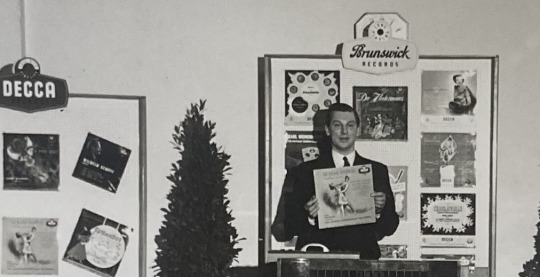
December 1961 was a heady, frantic month. Juggling the signing of the Beatles with his EMI and Decca visits, while coping with the record shops and his puzzled father, Brian sprinted ahead looking for record company interest even before the Beatles had fully committed themselves to him; such was the ardour of his belief in them. At Decca, Brian had excellent relationships with two executives; Arthur Kelland, the regional sales manager based in Leeds, and Colin Borland, assistant to Sidney Beecher-Stevens, the London marketing chief. Again using his influence as a retailer, he phoned both men to say that the Beatles from Liverpool could be their British ‘answer’ to American pop dominance of the best-selling charts. He asked Arthur Kelland to arrange him an appointment in London to negotiate extra discounts for the records his shop bought from Decca. Provocatively Brian said he thought other dealers might be getting preferential treatment. This was untrue, but Kelland politely referred him to Colin Borland in head office.
On regular visits to Liverpool Borland had been impressed by Epstein’s enthusiasm and candidness: ‘I’m a failed actor and I’ve got to get the shops moving well.’ The Decca men thought him ‘too nice’ for the rough and tumble of retailing, but like the entire industry they admired his techniques; and his rising sales graph made beautiful reading. Brian had delegated many decisions to his shop manageress, Josephine Balmer; but he earned Borland’s respect by often telephoning him in London to ask precise reasons for Decca’s pressure on him to display promotional material on certain artists. ‘Why should I give you my window display? Are you going to do a big advertising campaign? He always wanted to ensure that he would reap a benefit from helping them.
And Borland always found Epstein convivial company. Unlike many provincial shop managers, Brian never opted for the most expensive restaurants when Borland visited Liverpool. He was happy with a simple trattoria. It was a fine example of his integrity, for it showed that Brian was not a grasper. Borland suggested lunch to discuss the request for discounts.
To his surprise and that of Beecher-Stevens, Brian arrived at their London office on 1 December 1961 and immediately dismissed the topic of discounts. That, he implied, was merely an excuse to get a chance to discuss something infinitely more important. It was the same tactic he had used with Ron White at EMI. ‘What I’m really interested in is getting records made by a group I’m managing.’ He produced a copy of the Liverpool pop paper, Mersey Beat, which featured a picture of the Beatles. ‘We were well aware,’ says Borland, ‘that this was the most important thing that had happened to him for a very long time.’
Epstein’s first proposal was revolutionary, and showed a visionary commercial streak that was unlike anything happening in the pop record business in 1961. He wanted Decca to make a record that would be exclusively licensed to him, perhaps on something called NEMS records. Borland said this would be difficult. If Decca recorded the Beatles, then as a major trading company they would have to make their records available to the whole retail trade. Brian said he was prepared to make it viable personally by buying 5,000 copies. Even with a discount, that would have cost him £1,050, an astronomically high figure in 1961 but an indication of his unshakeable confidence. Conceding that the record would have to go on general sale, he added: ‘All right, if I’m giving you this nice big offer, I want the records first and I want to be allowed to sell them where the Beatles are appearing.’ It was, says Borland, a big gamble which Epstein was prepared to take to demonstrate his enthusiasm.
To any record company, Epstein’s offer would have been very attractive. A guaranteed sale of 5,000 would be a flying start: some singles did not get that many pressed as an advance, or sell that number in total. Next Brian played Borland and Beecher-Stevens the Polydor single “My Bonnie.” Listen to the backing group, Brian urged them. Like Ron White at EMI, the executives found it hard to isolate them from the vocalist.
Still, Brian’s offer of 5,000 sales was music to the ears of salesmen. Borland lifted the phone to Dick Rowe, the company’s head of artists and repertoire. This resulted in another lunch, a few days later, in Decca’s senior executive club on Albert Embankment. Rowe joined them at the coffee stage. Well aware of Epstein’s status, he listened to his enthusiasm and said he would start wheels moving. He delegated the next step to his young A & R assistant Mike Smith, who confirmed to Brian that he would travel to the Cavern to judge the Beatles’ potential. It was a triumphant breakthrough - a London record executive on his way to Liverpool! Brian could scarcely wait to return home to break the news to the Beatles, who were equally excited.
-The Man Who Made the Beatles by Ray Coleman
[After seeing the Beatles at the Cavern, Mike Smith offered them a London audition. The ill-fated audition took place on New Year’s Day, 1962.]
Post link
GEORGE:We need to be creative, instead of being in the doldrums, which it always is. The Beatles have been in the doldrums for at least a year. Ever since Mr. Epstein passed away, it’s never been the same.
PAUL: I mean, we’ve been very negative since Mr. Epstein passed away. And that’s why all of us, in turn, have been sick of the group. It’s discipline we lack. We’ve never had discipline. We had a sort of slight, symbolic discipline, like Mr. Epstein. You know, and he sort of said, ‘Get suits on,’ and we did. You know, and so we were always fighting that discipline a bit.
[all chuckle]
PAUL: There really is no one there now to say, ‘Do it.’ Whereas there always used to be. But Daddy’s gone away now, and we’re on our own at the holiday camp.

THE BEATLES posing for photos at Brian’s London home to mark the launch of their album, Sgt. Pepper’s Lonely Hearts Club Band (May 19, 1967).


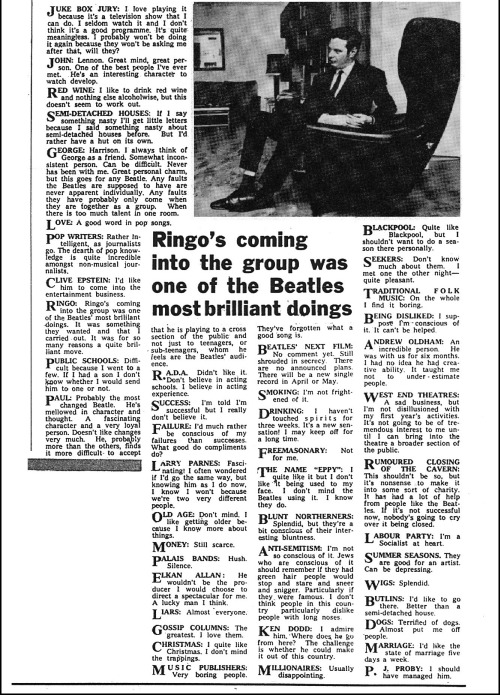
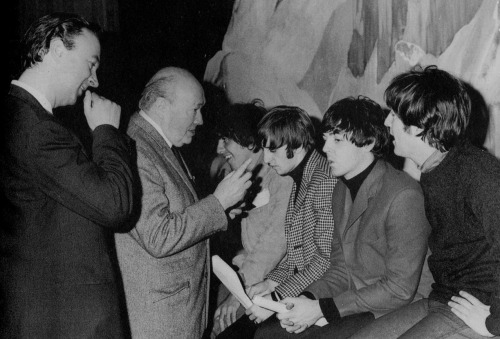
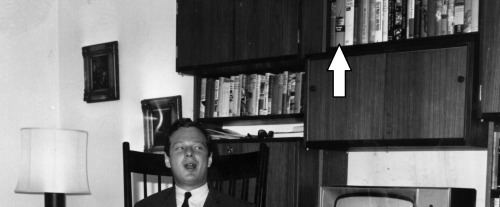
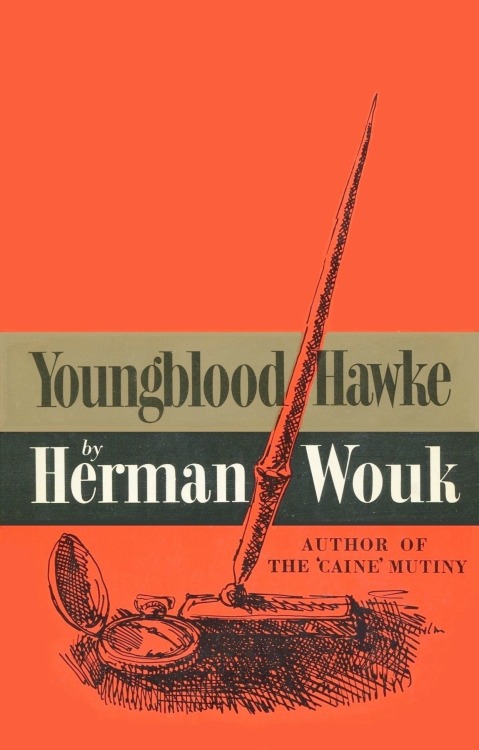
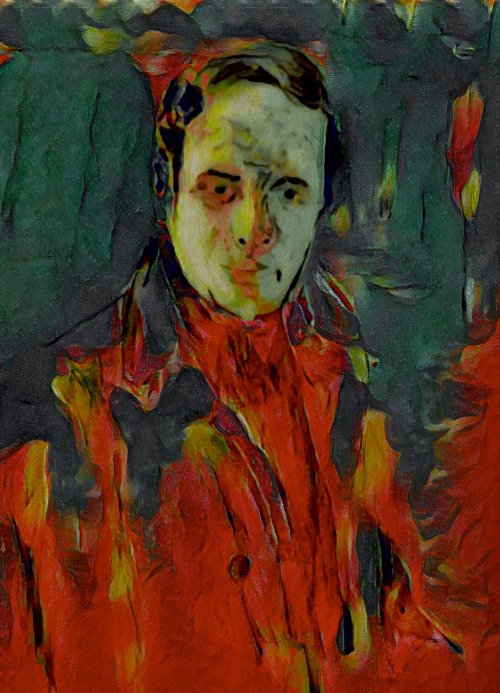

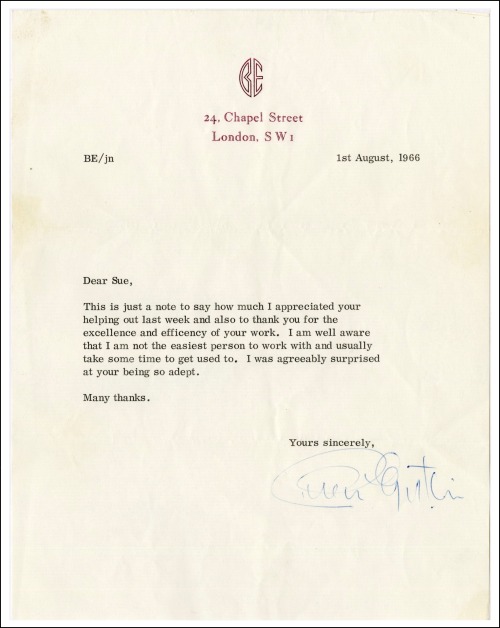
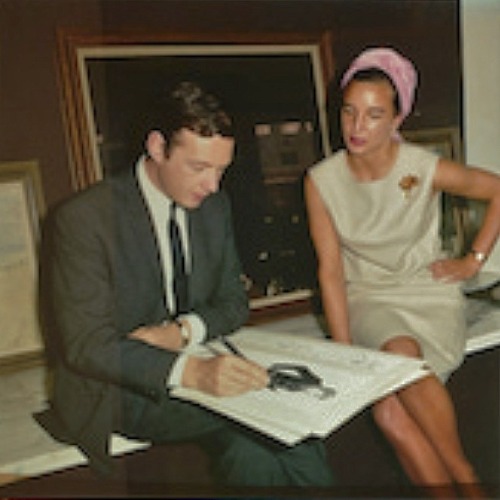
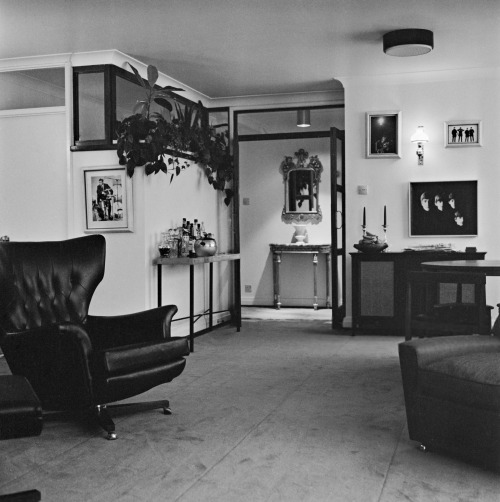
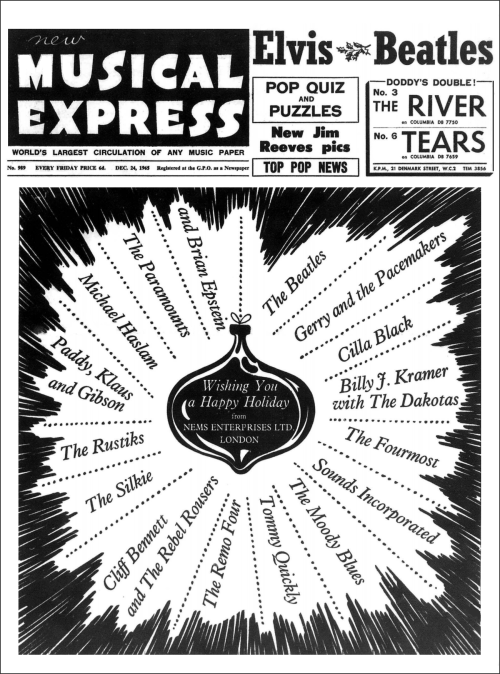
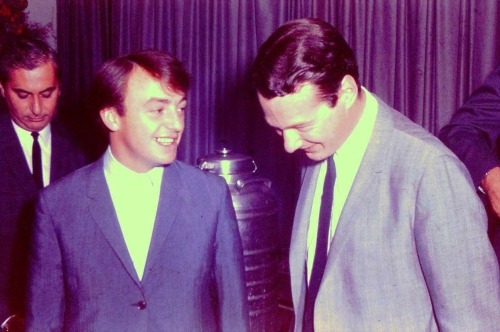



![The Beatles: Get Back [Part One] (2021) dir: Peter JacksonLinks to the articles featured in the pre- The Beatles: Get Back [Part One] (2021) dir: Peter JacksonLinks to the articles featured in the pre-](https://64.media.tumblr.com/2f3afb603007819a06d4bdeaa6e74228/70539024f3c0deea-c3/s500x750/dce116387298c50edbf2ef7dc00c42049a827469.png)
![The Beatles: Get Back [Part One] (2021) dir: Peter JacksonLinks to the articles featured in the pre- The Beatles: Get Back [Part One] (2021) dir: Peter JacksonLinks to the articles featured in the pre-](https://64.media.tumblr.com/fb8deffb15dff9d6b6534b1a59e6f55b/70539024f3c0deea-89/s500x750/fc79091c0b4bab6289e8a70754a2a9d2db88f922.png)
![The Beatles: Get Back [Part One] (2021) dir: Peter JacksonLinks to the articles featured in the pre- The Beatles: Get Back [Part One] (2021) dir: Peter JacksonLinks to the articles featured in the pre-](https://64.media.tumblr.com/20fed8c18bd1923ba4017f64da4723e5/70539024f3c0deea-c0/s500x750/8e4f3942feba600ab63ff9c2d4752de60b1e9a79.png)
